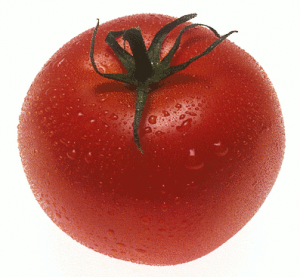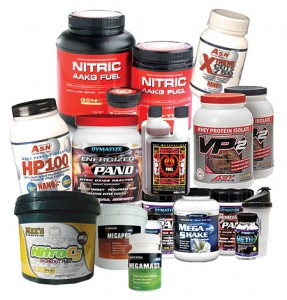How to cut eczema rates in babies
September 30, 2007 by AnnA
Filed under Childrens Health, Skincare
You can’t turn on the television without endless ads promoting products that encourage us to eradicate every single germ I the vicinity with a variety of chemical products. My mother’s favourite dictum of ‘you’ve got to eat some dirt before you die’ is now deeply unfashionable, but there was a lot of sense in it. For children to build up immunity they need some exposure, so a completely sterile environment is not the answer. WE are now seeing a huge increase in cases of eczema – in fact the number of children suffering from it has doubled in a generation. It wasn’t widely reported, but Dr Chris Steele spoke up on television on the This Morning programme and suggested that one reason why at least 35% of babies now suffer from sore, flaking and itchy skin be in part due to the fact that our drive for cleanliness means babies are being washed too often and this causes damage.
Nor is it just children who are affected; eczema affects more than 5% of adults and many skin experts agree that a lot of it is down to our over use of artificial cleaning agents, solvents and detergents. If you want to try some natural solutions for dry, itchy skin and eczema then first look at your diet and increase the amount of essential fatty acids. A Danish study showed a 58% success rate when patients were given fish oil supplements over a 4 month period and every time you add oily fish like mackerel to your diet you are giving yourself a dose of Omega-3 oil and also vitamin D, both of which are good for the skin. Zinc is an essential trace element for healthy skin and natural sources include oysters, red meat, poultry, pumpkin seeds, dairy products, beans and lentils, yeast, nuts, seeds and wholegrain cereals.
For more help with skin conditions like eczema there is a useful website at Skin Care Campaign
Natural help for antibiotic side effects
I have mentioned before the problem with taking unnecessary antibiotics, but if you have to taken them then it can really help to take preventive measures to avoid some of the more common side effects. Though their job is to knock out infection-causing bugs, antibiotics often end up destroying good bacteria, triggering stomach troubles and yeast infections and often lead to low moods or depression in susceptible people.
The most important thing you can do while taking antibiotics is to reintroduce good bacteria into your body. In between doses, take good probiotic supplements like acidophilus and bifidus or a good probiotic yoghurt as that will help with antibiotic-related diarrhoea that can occur for those on antibiotic regimes in hospital. This last affects around 25% of those in hospital and a recent trial showed that simply drinking a probiotic such as Actimel reduced their risk of getting diarrhoea by 17%, and would certainly help anyone taking antibiotics at home.
Another problems associated with taking antibiotics is yeast overgrowth, and this can cause vaginal yeast infections and stomach upset. Help your body out by drastically reducing the amount of sugar you have in your diet in food, or in drinks, and increasing the amount of garlic and onions you eat as they help keep yeast in check. Antibiotics put a great strain on the liver, because every drug we take has to be broken down in the body and that’s the liver’s job. Support it by eating dark-green leafy vegetables like kale, broccoli, beets and artichokes to keep the bile flowing. To regenerate your liver cells, take milk thistle supplements.
If you are susceptible to low moods or depression, then antibiotics can be an problem as it is an associated side effect with some of the antibiotic drugs so please check that your doctor prescribes something that won’t trigger your low moods. For a natural help while on antibiotics, take a good B complex, a gram of vitamin C and St John’s Wort as ‘mood-enhancing’ package every day.
Echinacea vindicated
September 26, 2007 by AnnA
Filed under featured, Health, Natural Medicine
It’s a winter regular, the first sign of cold weather and I head for the Echinacea tincture to strengthen my immune system through the winter. Herbalists and anecdotal evidence has long believed that Echinacea is very effective at warding off colds and now there is further proof from scientists at the University of Connecticut School of Pharmacy. They have not identified the precise mechanism by which it does this, but the study revealed that although the common cold is caused by 200 different viruses, Echinacea usage showed consistent reduction in the chances of catching a cold by up to 58%. Their findings came from reviewing the results of 14 separate clinical trials and found that Echinacea not only helped prevent colds, it also reduced the length of an established cold by a day and a half. Time for me to take my tincture!
Killer diet for rheumatoid arthritis?
September 19, 2007 by AnnA
Filed under Drugs & Medication, featured, Food & Nutrition, Health, Healthy Ageing, Mental Health, Natural Medicine
First on the hit list are tomatoes, maybe not killers exactly but if you suffer from arthritis they are certainly to be avoided. They are among a group of foods that trigger inflammation and general discomfort because they contain solanine, an alkaloid that is known for its toxicity. Other foods that are high in solanine are potatoes, aubergines and peppers, all of which you might know better as the nightshade plant family. The solanine is found in their leaves and roots and its purpose is to provide natural protection against insects for the plant. When we eat those foods the solanine is neutralized in the intestine, but because of their ability to trigger joint pain, some researchers believe that arthritis patients may not be able to adequately process the solanine and so it is still toxic in their system.
If you suffer from arthritis then you know that dietary solutions can be very helpful for some people, so that taking all the nightshade family out of the equation can be beneficial. Unfortunately this does not make any difference at all to other people with arthritis and that it is another factor entirely that causes the most problems. An excellent book by Patrick Holford called Say No to Arthritis made this point many years ago, and pointed out that certain foods can increase the severity of rheumatoid arthritis symptoms and these include milk, pork, red meat, cod, eggs and cereal. This is now confirmed by research done in Norway and Sweden, which has shown that certain people may be predisposed to develop rheumatoid arthritis when their diet includes plenty of high-protein foods. If you do suffer from this painful condition then an investigation into what foods affect you might well be very beneficial, and the book I just mentioned is a good place to start with that.
ADHD drugs and risk of heart disease
September 17, 2007 by AnnA
Filed under Childrens Health, Drugs & Medication, featured, Health, Healthy Ageing, Mens Health, Mental Health, Natural Medicine, Womens Health
The number of children on anti depressants and other behaviour altering drugs has quadrupled in the last ten years. In 2005 GP’s wrote more than 631,000 prescriptions for drugs such as Prozac to under 16′s as against 146,00 in the mid 1990′s. This disturbing trend sees drugs being the first line in the situation instead of other options such as counselling which might be more appropriate. In line with the fact that the use of Ritalin to control stress and aggressive behaviour in children has also increased tenfold in the same period, there is a timely study being undertaken in the USA to look at the potential heart risks from medicines used to treat attention deficit hyperactivity disorder (ADHD).
The U.S. Food and Drug Administration, in collaboration with the Agency for Healthcare Research and Quality, will examine clinical data of about 500,000 children and adults who have taken ADHD drugs, including Ritalin. The analysis is expected to take about two years and will include all drugs currently marketed for treating ADHD. There are millions of people taking these medicines worldwide and it is known they can increase heart rate and blood pressure, and this has raised concerns they may therefore raise the risk of heart attacks, strokes or other cardiovascular problems. There have been cases reported of heart problems in both adults and children who receive drug treatment for ADHD, but these patients have had known underlying risk factors. What is not known is whether or not these events are directly related to the drug treatment and the study hopes to get further information to protect from potential risks from heart disease.
SOS for supplements
September 15, 2007 by AnnA
Filed under Natural Medicine, Vitamins & Supplements
Your ability to freely choose and use natural medicines and supplements has been attacked on various fronts over the past few years. Campaigns have been ongoing to save specific supplements, or dosages, and now Consumers for Health Choice (CHC) are diving in with a campaign to Save Our Supplements by first targeting Gordon Brown and the new minister for health, Dawn Primarolo, by starting with a full page ad in The Guardian on the opening day of the Labour Party Conference on September 24th 2007. This ad will be an open letter to the Prime Minister and a further letter will be sent to the President of the European Commission, Jose Barroso as well as being placed in European journals in 12 countries to bring pressure on the commission to safeguard the future of consumer choice in the area of natural medicines and supplements.
Over 300 nutrients and nutrient sources that are already on the UK market, and accepted as safe by the regulators, are not included on the ‘Positive Lists’ the EU will accept and in order to get on the list it is estimated a manufacturer will have to submit a dossier of information that is estimated to cost around £250,000 per substance. This is obviously completely out of the range of the many small herbal companies that have been in existence for many years and it is anticipated that only 20 dossiers are expected to be submitted. One of the main areas of concern is over what the EU can set as maximum dosage for vitamins and minerals and these levels are likely to be extremely low. it will be illegal to market supplements which contain higher levels than these even though such levels have already been established through long usage as being safe. There has been substantial pressure from the pharmaceutical lobby and from the French and German Governments, to only allow low dose supplements and this would inevitably mean that a great many safe, popular and effective higher potency supplements will removed from the UK market. If you are a member of the Women’s Institute, you will be hearing more about this as CHC Director Sue Croft is in talks with the WI to encourage their 211,000 members to lend their support to the campaign. The WI has over 6,800 groups nationwide and is committed to improving the nations health through diet, so they would make ideal campaign partners.
More information on how to help, or if you wish to make a contribution to the campaign from the website at www.consumersforhealthchoice.com
Extra health benefits for men
September 13, 2007 by AnnA
Filed under Childrens Health, Health, Healthy Ageing, Lifestyle, Mens Health, Travel
Over 16 million adults in the UK currently are affected by hypertension and it is certainly vitally important to control high blood pressure to help keep your heart healthy. However, now it seems that paying attention to your blood pressure can also bring other benefits, particularly for men and some of the concerns they might have around ageing. A study conducted by researchers from Harvard and the Veterans Association (VA) in the USA examined the medical records of more than 350 older men who were part of the VA Normative Aging Study, which included a range of neuropsychological tests. This is a way of looking at brain function by summarizing the results of a series of organized mental tasks such as ability to learn and retain information, problem solving ability and intelligence for example. The key finding was that as the men aged, their overall neuropsychological function declined.
That is something you might expect, but what was startling was that that decline was significantly more pronounced among men who had high blood pressure but were taking no preventive measures or treatment to control it. In particular this group showed a reduced ability to handle language so that their verbal fluency and word recall was significantly worse when compared to men who also had high blood pressure but who had it under control. So if you want to keep on having lively arguments using exactly the right words then make sure you monitor your blood pressure levels!








